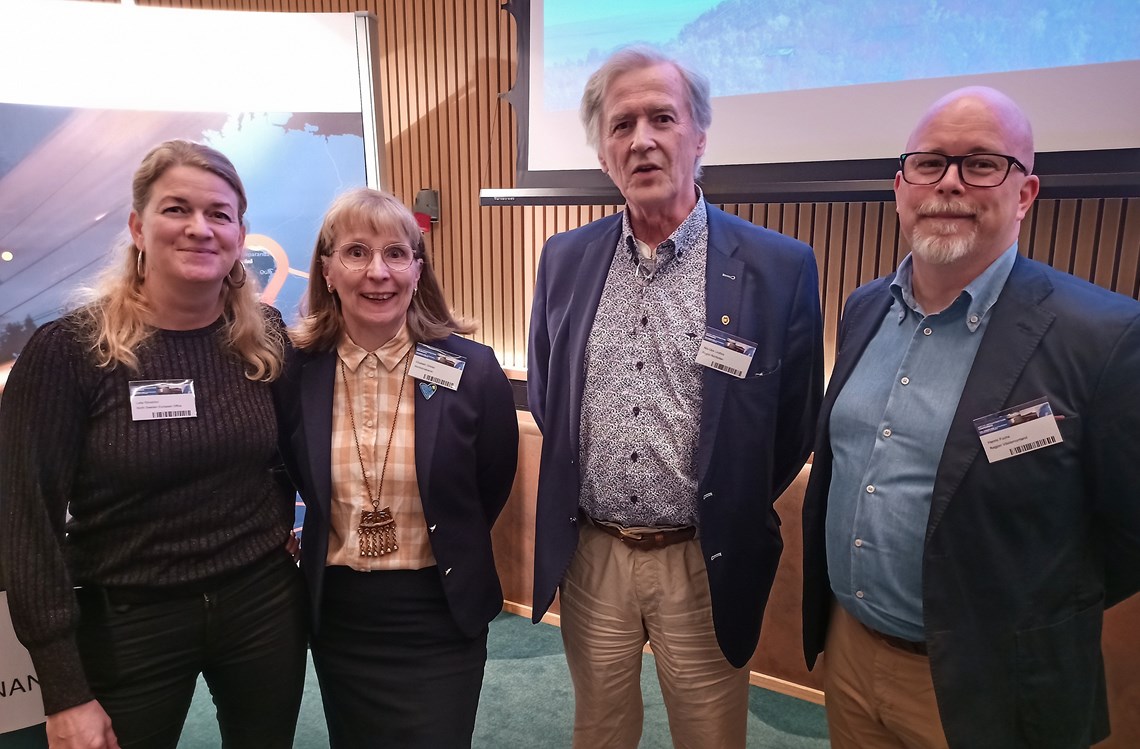More cooperation in the Arctic for a sustainable development of the transport system

That was one of the main messages from the Arctic Infrastructure Conference last week. The conference brought together transport stakeholders across North Norway, North Sweden and North Finland in Kiruna to discuss current challenges and the future of logistics and infrastructure in the three arctic regions.
The issues discussed during the two-day conference were related to connectivity, green industry, mining, investments, infrastructure and attracting workforce to the regions.
– We can be the frontrunner of the green transition in Europe
stated Nils-Olov Lindfors, Regional Councellor of Norrbotten, Sweden. He referred to the many advantages in the regions, such as hydropower, forest, battery cells, green steel, carbon capture, ammonia and a strong innovation system.
The same message was supported by Karianne Bråthen, member of the Norwegian Parliament for the Labour Party. She stressed the importance of more cooperation.
– Through the Nordic battery belt, we can deliver an entire value chain within batteries. But we need more formal contact and coordination across national borders, Karianne continued.
Despite sharing many advantages, several participants pointed out important challenges that needs attention. The NSPA is a sparsely and aging populated region with long distances and a cold climate makes the regions vulnerable.
The development of a large-scale and environmentally friendly basic industry is threatened by shortcomings in transport infrastructure.
Pooling resources and coordination of actions
– Networks such as the NSPA are so important. Through this cooperation we can effectively influence EU policy to further stimulate growth and infrastructure development in our region.
according to Linda Helén Haukland, Executive of Planning and Business Development in Nordland County Council. She further emphasised the importance of pooling resources and coordination of actions to influence EU policy more effectively.
– It is important to build an efficient and environmentally friendly transport system that covers the transport needs of citizens and businesses, through sustained cooperation on international transport corridors and logistics solutions, she continued.
Strengthening of the Arctic transport link to Europe
One example of successful cooperation highlighted during the conference was the Bothnian Corridor project. The project was a strategic effort between the regions to increase the status of the Bothnian corridor and become included in one of EUs nine core network corridor Scandinavia-Mediterranean, also called ScanMed.
The corridor, which previously ended in Stockholm, was extended north in in 2021 to include Kiruna-Narvik and Haparanda-Oulu as well. This is the first and currently only corridor which reaches the Arctic.
– We are very close to achieving our goals now, said Line Elisabeth Sinclair, project manager at The North Bothnia Line
Kristiina Hallikas, Senior Officer Traffic System Planning at the Finnish Transport Infrastructure Agency, said that the extension of ScanMed, as well as the one of the North Sea Baltic Corridor, is of equal importance to North Finland. The region has received recovery funding from the EU to develop important transport and logistic systems in the region
A need for cooperation to tackle challenges
The conclusions from the conference were clear: the arctic regions need to strengthen the cross-border cooperation to ensure a sustainable development of the transport system.
